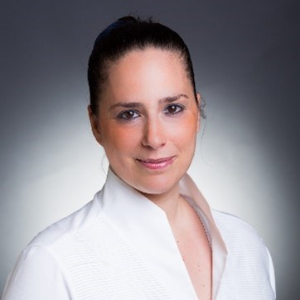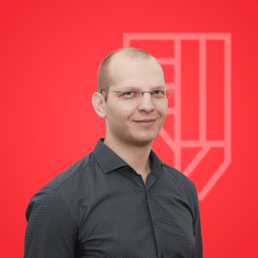Inner drives: Is the future of marketing communications more sustainable when using backcasting?

The two authors accompanied by Zoltán Havasi, Chief Strategy Officer at Wavemaker.
The exercise led to a unique knowledge accumulation process that has substantial research relevance. As staff members felt free to express their concerns with the current operations of the industry, unintentionally this backcasting revolved around the role of marketing communications in transforming business to an ecologically sustainable and socially just modus operandi. While presenting the results of this action research, on the one hand this paper aims to provide inputs to reorienting marketing communications from its undignified status in sustainability efforts to something that supports sustainability transitions in society. On the other hand, it aims to contribute to the methodological discourses on backcasting. While it has been long established that backcasting is an adequate tool to address sustainability issues, this project suggests that participatory backcasting as a methodological framework has its own inner drives that lead to responsible and sustainable mind-sets even without such framings. These inner drives may have to do with the nature of utopian thinking, and the psychological safety and intellectual independence it provides.
Link to the article:
Koves, A., & Kiraly, G. (2021). Inner drives: Is the future of marketing communications more sustainable when using backcasting? FUTURES, 130.
Authors:

Alexandra Köves is an ecological economist, associate professor at the Corvinus University of Budapest. She graduated in International Business and Languages from the Heriot-Watt University in Edinburgh. She later completed postgraduate training in international relations at the Diplomatic Academy of Vienna. In the first ten years of her career, she dealt with development policy within the Hungarian public administration, especially social development, including eight years in a senior management position.
After spending time in public administration, she participated in many domestic and international projects as an expert, consultant, and project manager. The decade and a half spent in development policy made her question the fundamentals of economic and social development. It was in this spirit that she wrote her doctorate at the Corvinus University of Budapest in the field of ecological economics doing research on sustainable employment. Since then, she has been involved in futures research looking at how to create more environmentally sustainable and socially just systems. According to her creed, how we think about the future, what we consider possible or impossible largely determines what we can or want to do in the present. That is why initiatives – whether in the civil, academic, or economic sectors – that support the transition to such systems are important. She teaches subjects related to decision-making and sustainability at the Department of Decision Sciences in the Institute of Business Economics.

Gábor Király is a sociologist, graduated from Eötvös Loránd University and the University of Maastricht. He wrote and defended his doctoral dissertation on social participation in 2009 also at Eötvös Loránd University. He is currently senior researcher at the Budapest Business School, head of the Centre for Excellence in the Future of Higher Education, and the Deputy Dean of the Faculty of Finance and Accounting. In recent years, he has also been active in several research areas – WLB, higher education research and sustainability studies: he edits special issues for domestic and international journals and participates in the organization of scientific events and lectures; and often publishes in leading domestic and international journals.
In recent years, he has also been active in several research areas – WLB, higher education research and sustainability studies: he edits special issues for domestic and international journals and participates in the organization of scientific events and lectures; and often publishes in leading domestic and international journals. Currently, as a researcher, he mainly deals with the connections between learning, participatory approach, and organisational research, as well as issues of research methodology. He was a senior researcher in the OTKA research entitled Dilemmas and Strategies in Reconciling Family and Work, which took place between 2013 and 2017.